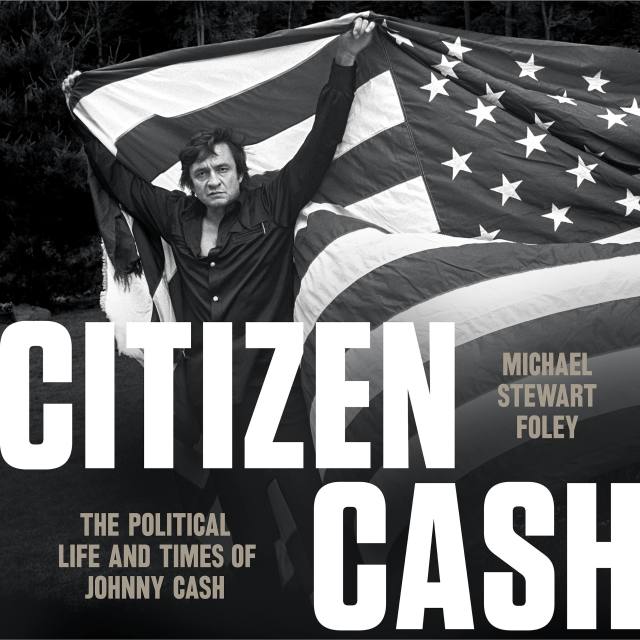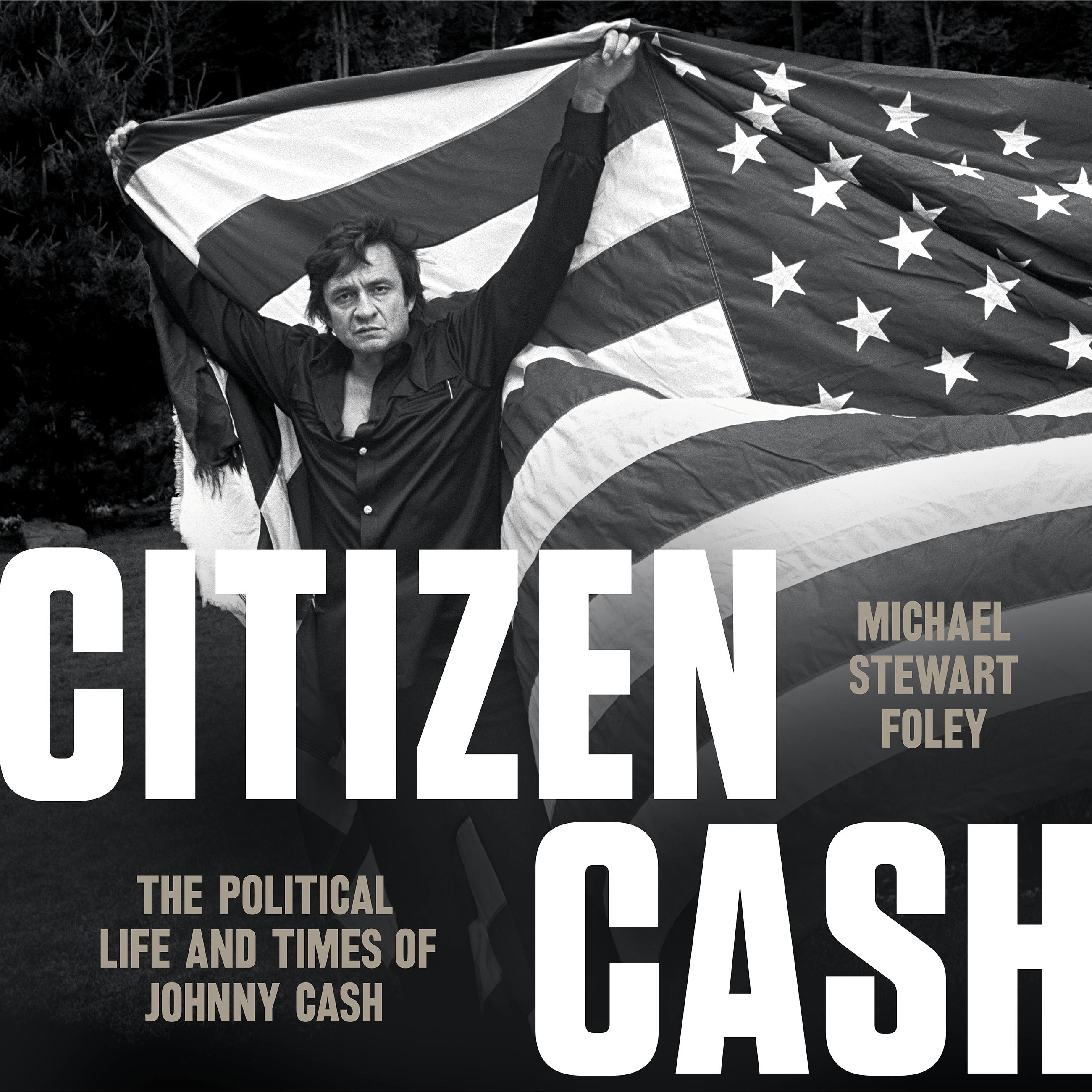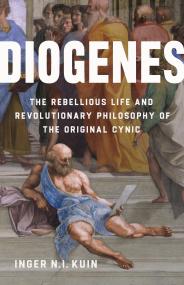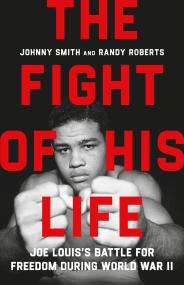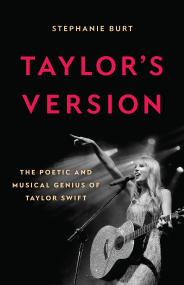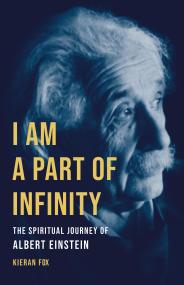By clicking “Accept,” you agree to the use of cookies and similar technologies on your device as set forth in our Cookie Policy and our Privacy Policy. Please note that certain cookies are essential for this website to function properly and do not require user consent to be deployed.
Citizen Cash
The Political Life and Times of Johnny Cash
Contributors
Read by Michael Stewart
Read by Greg Littlefield
Formats and Prices
- On Sale
- Dec 7, 2021
- Page Count
- 368 pages
- Publisher
- Hachette Audio
- ISBN-13
- 9781549112249
Price
$27.99Format
Format:
- Audiobook Download (Unabridged) $27.99
- ebook $18.99 $24.99 CAD
- Hardcover $32.00 $40.00 CAD
This item is a preorder. Your payment method will be charged immediately, and the product is expected to ship on or around December 7, 2021. This date is subject to change due to shipping delays beyond our control.
Buy from Other Retailers:
A leading historian argues that Johnny Cash was the most important political artist of his time
Johnny Cash was an American icon, known for his level, bass-baritone voice and somber demeanor, and for huge hits like “Ring of Fire” and “I Walk the Line.” But he was also the most prominent political artist in the United States, even if he wasn’t recognized for it in his own lifetime, or since his death in 2003.
Then and now, people have misread Cash’s politics, usually accepting the idea of him as a “walking contradiction.” Cash didn’t fit into easy political categories—liberal or conservative, Republican or Democrat, hawk or dove. Like most people, Cash’s politics were remarkably consistent in that they were based not on ideology or scripts but on empathy—emotion, instinct, and identification.
Drawing on untapped archives and new research on social movements and grassroots activism, Citizen Cash offers a major reassessment of a legendary figure.
-
“‘Citizen Cash’ succeeds winningly. Foley is a well-regarded historian and does an excellent job of placing Cash’s life and career within the contexts of his time.”Jack Hamilton, Washington Post
-
"The book is a welcome corrective to the tendency to treat the man as so internally contrary as to be a complete enigma."Stephen Metcalf, The Atlantic
-
"Citizen Cash usefully combines biographical detail and cultural analysis with music history to provide an in‑depth portrait of the ways Cash acquired his political and social ideas and wove them into the fabric of his music."Henry L. Carrigan, Jr., Bookpage
-
"Foley’s energetic and consistent examination of how Cash’s music and life express a politics of empathy offers a fresh reading of an iconic artist about whom it seems that everything has already been written."No Depression
-
“Foley—through extensive access to hitherto untapped archives—reveals as an artist’s fundamental commitment to empathy, in both his work and his life.”Jonny Diamond, Lit Hub Editor in Chief
-
"Foley skillfully weaves anecdotes about Cash’s stances throughout the book to illustrate the singer’s sometimes hard‑to‑define political positions."Washington Independent Review of Books
-
“[A] deeply researched, unique examination, Foley looks at the many reasons Cash was drawn to particular issues … With sufficient detail and a gift for storytelling, Foley explores these and many other aspects of Cash’s complex life. A powerful biography that will leave fans with a newfound respect for the Man in Black.”Kirkus (starred review)
-
“Michael Stewart Foley has written a book about Johnny Cash, and I cannot think of a better match of an author and subject. Foley shows how Cash’s deep reserves of empathy and insight made him an artist for his time (and ours). This book will change how you think about Johnny Cash.”John McMillian, professor of history at Georgia State University and author of Beatles Vs. Stones
-
“In this compelling biography, Michael Stewart Foley recovers the ‘Man in Black’ as a prophetic political voice who used his microphone to plead the case of ordinary Americans, criticize the powerful, and prod his listeners to envision a better world. He shows how Johnny Cash combined empathy and entertainment, bringing together religion, a country vernacular, and lyricism to challenge injustice and inequality in a country that he loved. This is a moving, important book.”Thomas J. Sugrue, New York University
-
“History is written for an era as much as about one, and historian Michael Foley has given us a Johnny Cash that speaks to our divided nation. Foley’s Cash offers a ‘politics of empathy’ that transcends political division; he is a man shaped by the particulars of history, but also a man capable of change. Foley beautifully combines historical biography with his knowledge of Cash’s music and its context. This is masterful work!”Beth Bailey, author of Sex in the Heartland
-
“Citizen Cash is a big-hearted book about a big-hearted artist making his way through a complicated nation. A refreshing, healing examination of what Michael Foley calls Cash’s ‘politics of empathy.’ In Foley’s compassionate take on the Man in Black, we get an earthy sense of public citizenship that was as deep as the man’s voice. Read it and feel better about who we are as a diverse people in a troubled land.”Jefferson Cowie, author of Stayin’ Alive: The 1970s and the Last Days of the Working Class
-
“What does it mean to be a political artist? For an artist to ‘be political’? In a timely and finely researched meditation on Cash’s takes on incarceration, Native rights, racism, and the war in Vietnam, Foley embraces the messiness of politics in public. We get Cash the researcher, Cash the documentarian, Cash the curator, and Cash the empath. We get a book that re-establishes Cash as a fascinating prism for looking though some of the most urgent issues still haunting American political life.”Josh Kun, author of Audiotopia: Music, Race, and America
Newsletter Signup
By clicking ‘Sign Up,’ I acknowledge that I have read and agree to Hachette Book Group’s Privacy Policy and Terms of Use
